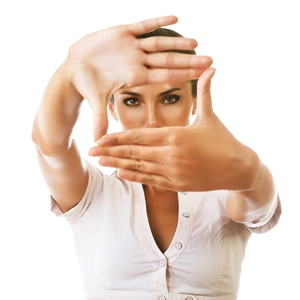It clearly strikes a chord as it
won the 2019 Los Angeles Times Book
Prize for Best Mystery/ Thriller, the 2020 British Book Award for Crime &
Thriller Book of the Year, and it was longlisted for the 2019 Booker Prize. As
well as being critically praised, it is also popular with the public, and won
the 2019 Amazon Publishing Reader’s Award for Best Debut Novel. It is certainly
easy to read with short chapters (all with a one or two word title) and a fairly
universal theme – we may not all have murderous siblings, but many of us understand
sibling rivalry and family dynamics.
As the oldest, Korede is obliged
to care for her younger sister, Ayoola, and now, she literally cleans up her
sister’s messes. It doesn’t help Korede’s mental state to feel that her sister
is outstandingly good-looking, and to constantly compare herself unfavourably. “The
resemblance is there – we share the same mouth, the same eyes – but Ayoola
looks like a Bratz doll and I resemble a voodoo figurine.”
Ayoola carries a knife on dates
and she seems to have little compunction in disposing of her suitors, she
claims in self-defence. Korede wants to believe her, but there is a touch of
the Oscar Wilde loss of parents about her narrative; after all, she has killed
three people; “Three, and they label you a serial killer”. Ayoola is seemingly
remorseless and is back partying and posting on Instagram and Snapchat straight
after she has killed her partner. She apparently believes that she is entirely
innocent: “Her actions were the fault of her victims and she had acted as any
reasonable gorgeous person would under the circumstances.” The implication is
that she is excused because of her looks – it’s different if you’re beautiful.
When Ayoola shows interest in the
doctor with whom Korede works, he of course reciprocates it, despite never
having noticed Korede’s passionate feelings towards him. This might inform her questioning
her sister’s version of events, at which Ayoola accuses her of victim shaming. “Victim?
Is it mere coincidence that Ayoola has never had a mark on her, from any of
these incidents with these men; not even a bruise?” At a time when we are
struggling to believe women, this seems irresponsible, but education is not the
duty of the author. Indeed, in her interview, Braithwaite contends, “I like to
have fun. The books where I can tell I’m being taught something are a trial in
the reading. If there’s a story and you learn something along the way; it’s a bonus.”
It transpires that the girls’
father subjected them to traditional and tribal cruelty, and Korede is
concerned that Ayoola may have inherited some of this inherent brutality. “More
and more, she reminds me of him. He could do a bad thing and behave like a
model citizen right after. As though the bad thing had never happened. Is it in
the blood? But his blood is my blood and my blood is hers.”
There are some things which may
seem a little far-fetched for a genuine crime thriller – how could they
possibly not get caught? One explanation is that the police force is highly
corrupt, as are many other institutions in Nigeria, and they can be bribed to
look away. Another consideration is that this is not meant to be forensically
accurate. The page numbers are in a font that looks as though letters have been
cut from newspaper print, or perhaps a graphic novel where all the information
is condensed into one frame. It is currently being considered for film, which
will be dramatic but not exactly realistic.


